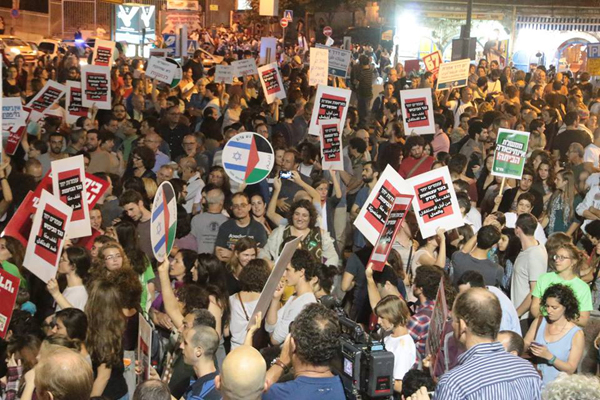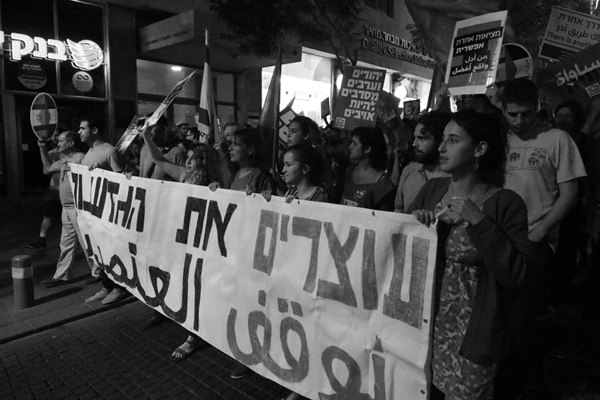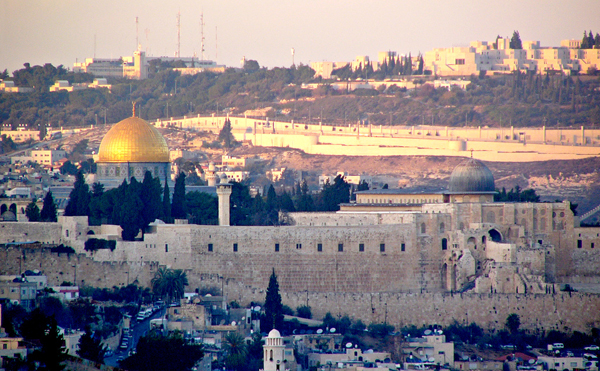The occupation and increased restrictions and attacks on Palestinians is causing enormous tension in Jerusalem in recent weeks. I asked two co-workers who work in Jerusalem to talk about what it’s like there now and what the international community can do. - Lucy
Saida Hawari Khader
The situation in Jerusalem is very tense, you can see so many check points that you have to pass through. The checkpoints cause a lot of traffic and the streets are so crowded.
Several times while I've waited to catch the bus, a bus only Palestinian people useto travel from Jerusalem to Ramallah, I’m afraid that the settlers may hit the bus with rocks or they may shoot at the bus. I’ve changed my seat to the other side of the bus, to the side that is not close to the settlement in Jerusalem, so if any rocks or shooting happens, I’ll be away from the window. It still feels unsafe.
The streets in Jerusalem are empty. For a few days, the schools were closed for the safety of the students. The streets of the Old City are empty. The students do not go to their schools because they are afraid of the soldiers, especially the ones that protect the settlers. Students are afraid to hold their school bags because the Israeli soldiers will say they are holding knives or they will stop and search them.
Soldiers have orders to kill
We’ve watched several videos of soldiers shooting innocent people without even trying to arrest people. The police and soldiers have orders to kill.
When I join a taxi with the staff, all the way home I am looking around afraid that something will happen, that someone will shoot. I’m always thinking of my kids and family, praying to get to them safely.
I am always thinking of the mothers who lost their kids, their sons. I wonder and worry whether they saw the video of how the Israeli soldiers or settlers shot their children without any mercy. Thinking of these mothers, I can’t stop crying.
My family lives in Ramallah. I take the bus every day into Jerusalem for work. We used to travel to Jerusalem on the weekends so the kids could see their grandma and their uncles, but since the clashes started and there is so much tension in Jerusalem, we don't travel to see them because I do not feel safe travelling with the kids. When my kids talk with their grandma on the phone, they say that I don't want us to go to Jerusalem because it’s not safe and calm. Their grandma answered them, “When the situation is calm and safe you will come for a visit." Sometimes I wonder when it will be safe and calm.
Burning the olive trees
It’s the olive season. Many Palestinian families can’t reach their lands because they are afraid the settlers will shoot them or hit them. Many olive trees have been burned by the settlers.
The international community should demonstrate and pressure their governments to know the true stories. I hope they can come to Jerusalem to see how the Palestinian people are suffering because of this tense situation. No one feels safe, no one feels he/she is safe from being shot or hit.
Sahar Vardi, Israel Program Coordinator
Palestine is spirit

Last Saturday there was a protest of approximately 1,500 people in city center Jerusalem under the slogan "standing together - not giving into despair." We called for the end of occupation, chanting "Jews and Arabs refuse to be enemies," but the truth was there were very few Palestinians in the protest. East Jerusalem Palestinians were too afraid to join the protest in West Jerusalem - afraid of Israeli police arresting them, afraid of Israeli mobs attacking them.
A crowd of right wing Israelis gathered around the protest, cursing, spitting, trying to push some of the protesters, and singing nationalist songs wrapped in Israeli flags. These are the sounds I have grown used to hearing in Jerusalem city center. Which is why when an East Jerusalem Palestinian rapper went up on stage and sang, his Arabic lyrics filling the square, his words echoed so strongly: "Palestine is not land, Palestine is spirit".
Jerusalem is made of fear

The feeling around us is one of fear. Living my life somewhere between West and East, between my home and studies, to the AFSC office in East Jerusalem, I have had a chance to see fear from both its sides. The fear from taking the bus to work in the morning, the fear in my grandmother’s voice asking if I'm going to the office while 200 meters away a Palestinian tried to stab an Israeli and was shot to death. But also trying to drive through a blocked East Jerusalem, talking to a Palestinian friend who's brother was hospitalized after being attacked by racist Israelis and he's too afraid to take the bus to Tel Aviv to visit him in the hospital.
The fear of my colleagues to let their children walk alone as they might get arrested, or mistaken for assailants and be shot. The fear of a Palestinian friend who was stopped in the street with four Israeli policeman with loaded assault rifles pointed at him telling him to take off his shirt, and him thinking that if he makes a wrong move - moves just a little too fast, he'll be gunned down. Fear - that is what Jerusalem is made of these days.
Calling for an immediate end to the occupation
The international community, which has the privilege of looking at what is happening here not just through the lens of fear, has a responsibility to remind us all that this violence is not created in a vacuum - it is part of a larger picture - a picture of occupation. It is the responsibility of the international community to move the discourse back to focusing on the occupation, with the events of recent weeks only being a symptom of that, and call for an immediate end to the occupation. This also means holding Israeli accountable for its actions and refusing to continue to support and fund Israel's policies.
Related content
Tears in Gaza and the horn in Hebron: An interview with Jennifer Bing
Reflections on Palestine: The madness of occupation in Hebron
Gaza one year on: Does the world wake up?
Israel's settlement policy in the occupied Palestinian territory
